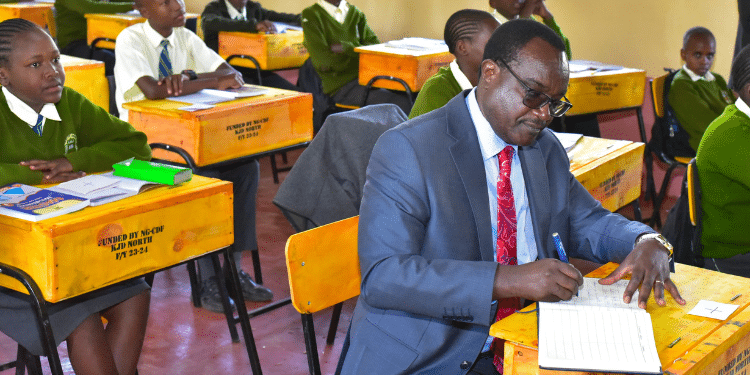Education Cabinet Secretary Julius Ogamba on Friday, January 10, addressed questions on whether the Education Ministry is considering changing the C+ cut-off grade for public university admission following a surge in the number of students qualifying for university entry in 2025.
Speaking to members of the press, Migos clarified that he has no intentions of altering the current university entry grade, even as the number of students scoring C+ and above increased from 201,000 to 246,000.
“The number of students joining universities in 2025 has risen from 201,000 to 246,000, which means universities will accommodate more students. We will retain the C+ grade as the cut-off for admission to public universities,” Ogamba stated.
He also addressed the challenges posed by this surge in enrollment amid a public funding crisis within universities.

Ogamba Assures Public of Continued Adjustments to University Funding Model
Ogamba assured that the government would allocate financial and human resources to ensure universities are equipped to handle the growing student intake while continuing to apply the university funding model with necessary amendments.
“The university funding model, which is student-based, will continue with adjustments based on recommendations from various committees, including concerns raised by the courts.
We will review all the issues, incorporate them, and establish a funding model that is fit for purpose. The funding model will remain student-centered,” the Education CS added.
Also Read: Anxiety as KNEC Withholds KCSE 2024 Results for Top National School
The 2024 KCSE candidates will be the third cohort under the student-centered funding model when they join universities in 2025.
Since its implementation, this model has faced significant criticism from students and education stakeholders who argue that it is discriminatory in how it selects students for funding their higher education.
High Court rules funding model unconstitutional
On December 20, 2024, the High Court ruled that the new university funding model unconstitutional and discriminatory, citing a lack of public participation.
Justice Chacha Mwita emphasized that the variable scholarship and loan funding (VSLF) model is biased because it establishes clusters based on perceived financial capability.
Also Read: Top Private Schools That Posted Impressive Results in KCSE 2024
“It’s unrealistic if not unfair to consider someone earning Sh70,000 per month as needy considering the level of taxation in the country,” Mwita stated.
He concluded by highlighting that everyone is equal before the law and that the state is prohibited from discriminating against any individual on any grounds.
Follow our WhatsApp Channel and join our WhatsApp Group for real-time news updates.











































































